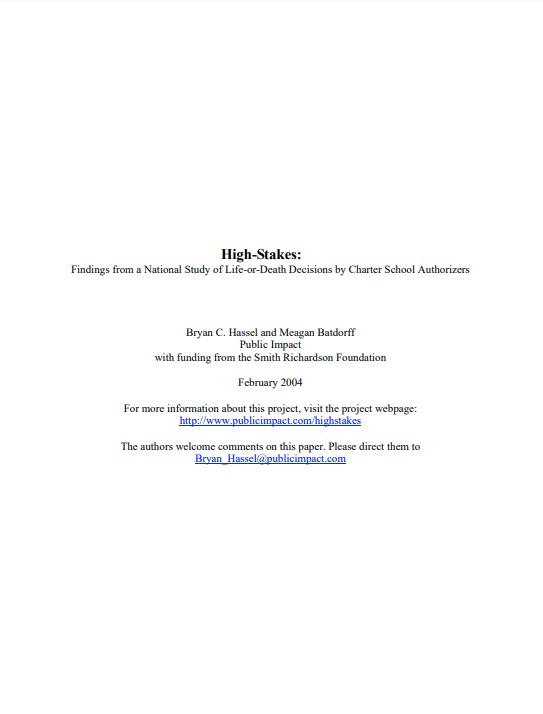This national research project, funded by the Smith Richardson Foundation, examined 50 cases of charter schools that have come up for high-stakes decisions – having their charters renewed, not renewed, or revoked. The study investigated how clear authorizers’ expectations for the schools were, the information authorizers used to judge progress, and how they made their decisions.
The study asks the question: “How are Charter Schools Being Held Accountable for Results?” To answer this question we looked at 50 charter school “decisions” from around the country.
For the purposes of this study we defined charter school “decisions” as definitive action taken by a sponsoring agency on the legal status of a charter. A sponsoring agency, or charter school authorizer, is an agency authorized by a particular state’s charter school law to charter a school by negotiating a contract that holds the school accountable to agreed upon expectations. These agreed upon contracts have a term of expiration – usually 3 to 5 years under the first contract. In theory, if charter schools meet the expectations set for student success and maintain good school-business practices, the charter will be renewed for another period of time. At the same time, there is a looming threat of closure. If these schools do not meet academic expectations or mismanage the school, the charter can be revoked in the midst of the term, or not renewed at the charter’s expiration date. The three types of “decisions” we focused on are Renewal, Revocation, or Nonrenewal.
This two-year project was designed to investigate the very basis of the charter school concept by asking several key research questions:
- To what extent are authorizers setting clear, measurable expectations that charter schools must meet in order to attain renewal or avoid revocation?
- To what extent are authorizers gathering information that allows them to determine whether schools are meeting these expectations?
- To what extent are authorizers making decisions based on a comparison of actual performance with expectations?
- To the extent that authorizers are facing challenges related to questions 1 through 3, what are the sources of these challenges?
- What practical recommendations emerge from these findings for authorizers and state policy-makers?

